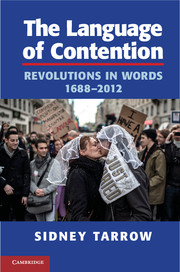Book contents
5 - Gender Words
Published online by Cambridge University Press: 05 June 2014
Summary
On January 11, 2012, the BBC reported that a town council in the village of Cesson-Sévigné, in Brittany decided to ban the use of the term “Mademoiselle” from the town's official business. The young mayor, Michael Bihan, was elected on the slogan “La ville pour tous” (the town for all) but then decided he had erred: “If I had it to do over again,” he confided, “my slogan would have been ‘La ville pour tous et pour toutes’” (the town for all men and all women). As the BBC pointed out, its Anglo-Saxon tongue embedded deeply in its cheek, “From now on, teenagers, graying grand-mères, career girls there will all be known as ‘Madame,’ just as men of all ages become ‘Monsieur’ as soon as they grow out of shorts.”
To Americans who have grown accustomed to the term “Ms.” to designate women of whatever age or marital status, there is nothing surprising about such a shift – except that it took so long for the French to bring it about. Consider the Ngram comparison of the use of “Ms.” and “Miss” in U.S. books from the 1960s on in Figure 5.1: in the 1970s and 1980s, “Ms.” became widespread, before leveling off slightly behind “Miss” in the 1990s.
- Type
- Chapter
- Information
- The Language of ContentionRevolutions in Words, 1688–2012, pp. 115 - 137Publisher: Cambridge University PressPrint publication year: 2013



